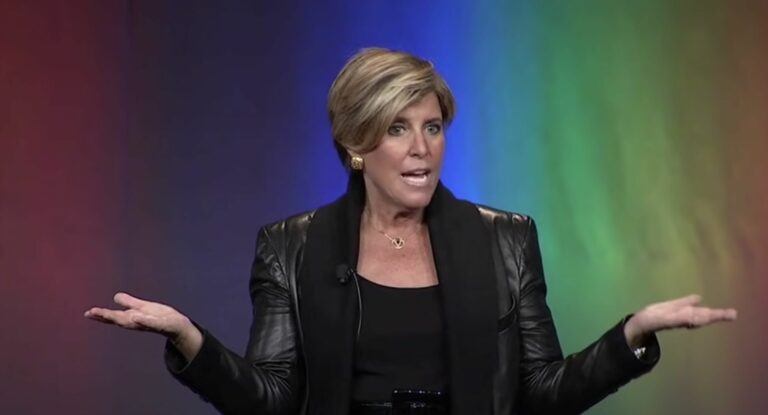In a recent episode of her podcast, “Suze Orman’s Women and Money (And Everyone Smart Enough to Listen),” personal finance expert Suze Orman explored the complexities of the yield curve and its implications for the economy and personal finance. Orman emphasized the importance of not taking jobs, loved ones, or financial stability for granted, especially in uncertain economic times.
Suze Orman is a renowned American financial advisor, author, and television host, widely recognized for her expertise in personal finance. Born on June 5, 1951, in Chicago, Illinois, Orman embarked on her financial career at Merrill Lynch in the 1980s, where she honed her skills in investment and finance. Her success led her to become a vice president at Prudential Bache Securities. However, it’s her role as a financial educator and advocate for financial literacy that has made her a household name.
Orman’s approach to finance is straightforward and accessible, making her advice popular among a wide audience. She has authored several best-selling books on personal finance, including “The 9 Steps to Financial Freedom” and “You’ve Earned It, Don’t Lose It.” Her work often focuses on empowering individuals, particularly women, to take control of their financial destinies.
Her television show, “The Suze Orman Show,” aired on CNBC from 2002 to 2015, further solidifying her status as a trusted financial guru. On the show, she offered advice on a range of financial issues, from savings and investments to debt management and retirement planning. Orman’s influence extends beyond TV; she is a sought-after speaker and a contributor to various publications, offering insights on financial trends and personal finance strategies. Her contributions to financial education and empowerment have earned her numerous accolades and a respected place in the world of finance.
Orman began by addressing her listeners’ queries about I bonds, promising to delve deeper into this topic in a subsequent episode. She then shifted focus to the concept of yield curves, particularly the normal and inverted yield curves. Orman explained that the yield curve reflects the relationship between the interest rates of short-term and long-term loans. In a normal scenario, longer-term loans, such as 20- or 30-year bonds, offer higher interest rates due to increased risk over time. However, an inverted yield curve occurs when short-term rates surpass long-term rates, which historically signals a potential recession.
Orman highlighted a significant inversion that occurred around July 3rd, where a two-year Treasury Note offered a higher interest rate than a 10-year note. This inversion, she noted, was the most severe since 1981. Orman clarified that an inverted yield curve does not immediately lead to a recession; rather, it typically precedes a recession by 12 to 18 months or even two years.
The flattening of the yield curve, which occurs after an inversion, is particularly concerning, according to Orman. She warned that a flattened curve, as is currently being observed, often indicates an approaching recession. Orman urged listeners to be cautious and not to misconstrue the Federal Reserve’s recent decisions or the stock market’s reactions as definitive signs of economic stability.
Focusing on interest rates, Orman predicted a temporary decrease followed by a potential increase. She advised listeners who invested in 30-year bonds when rates were over 5% to monitor their investments, as they might have already seen a return of approximately 3% in less than a month.
Orman also discussed a conversation with Dennis Devine, CEO of Alliant Credit Union, about what her listeners seek in the current economic climate. As a result, Alliant Credit Union offered a competitive 18-month certificate of deposit with an interest rate of 5.30% for deposits under $75,000 and 5.35% for higher amounts. This offer, she noted, is particularly attractive compared to the current rates of two-year Treasury Notes.
In her analysis of the current economic situation, Orman pointed out that the recent decline in Treasury rates and other economic indicators suggest a potential easing of interest rates. However, she cautioned that this trend might not persist, and interest rates could rise again.
Orman concluded by emphasizing the importance of being vigilant with personal finances, especially in the face of potential economic downturns. She encouraged listeners to seize investment opportunities in the stock market, particularly during downturns, as these could present valuable chances for growth.
Featured Image via YouTube









